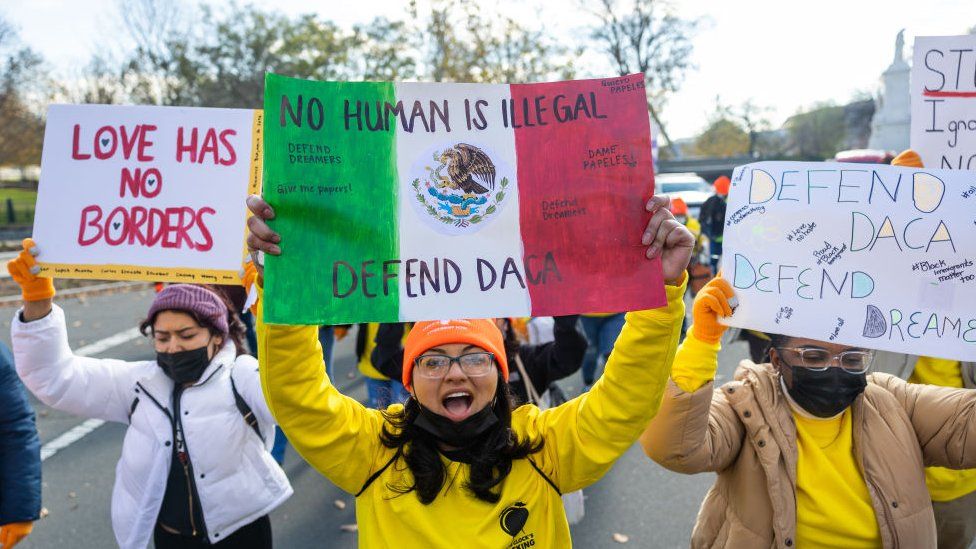A federal judge in Texas has ruled that a longstanding programme protecting migrants who came to the US as children from deportation is unlawful.
The judge, however, did not grant a request to terminate those protections over the next two years.
Nine Republican-led states sued to end it, claiming they have to spend millions of dollars to support illegal immigrants living in the US.
More than half-a-million people – known as Dreamers – are currently enrolled.
The Biden administration is expected to appeal Wednesday’s ruling, potentially setting the stage for a showdown at the US Supreme Court.
The federal programme was first implemented during the administration of Barack Obama in 2012.
It shields recipients from deportation and allows them to be granted work authorisation, get a driving license, and apply for education financial aid.
After surviving a previous attempt to end the programme during the Trump administration in 2020, Daca was dealt a blow in July 2021 when Texas federal judge Andrew Hanen declared it unlawful and ruled it had been illegally created without congressional authorisation.
That ruling allowed Daca recipients to renew their status, but blocked first-time applicants from applying.
Additionally, the states that sued – which include Texas, Alabama, and South Carolina – claim they spend hundreds of millions of dollars annually when immigrants are allowed to remain in the US illegally.
The ruling was appealed and sent back to Judge Hanen’s court after the Biden administration revised the programme.
“The Obama and Biden programs are practically indistinguishable in both the negative harms that they will have on this country and in the illegal means used to implement them,” Texas Attorney General Ken Paxton said in February.
The Biden administration has repeatedly defended the programme, and in April announced expanded health coverage for recipients.
“Dreamers are Americans. Many have spent the majority of their lives in the United States,” President Biden said in a statement marking the programme’s eleventh anniversary on 15 June.
“They are our doctors, our teachers, and our small business owners.”
In June, Felix Villalobos, an attorney with the Refugee and Immigrant Center for Education and Legal Services, told the BBC that the potential termination of Daca would mean many recipients will be forced to “live in the shadows”.
“They’ve been given the opportunity to live a basic life. For it to be taken away, I think, is a very hard pill to swallow,” he said.
The Daca initiative is now likely to head to the Supreme Court for a third time.
The court previously heard a Daca case in 2019, but took no action. Then in 2020, the court ruled 5-4 that President Trump had improperly moved to end the programme.
Government statistics show that, of the programme’s approximately 580,000 recipients, about 80% were born in Mexico.
While the recipients are spread across the US, the largest number – 30% – are in California, followed by Texas, where 16% live.
This video can not be played
